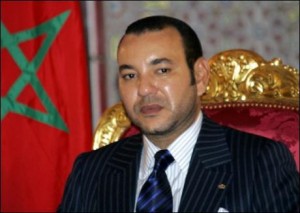
Morocco’s king has decided to do the right thing. Whether purely out of a perceived need to save his own skin or because the Arab uprisings have reminded Mohammed VI of his cherished pretensions to be a reforming monarch, it is hard to say. Maybe a bit of both. But his surprise announcement on Wednesday of constitutional reforms was both wise and prudently timed.
On February 20, tens of thousands of Moroccans gathered in dozens of cities to call for a loosening of the kingly grip on power and the introduction of truly representative democracy. The state did not suppress the protests and a further show of popular force has been planned for March 20. Mohammed VI said he would not be pushed into a knee-jerk response, and that his reform process was ongoing.
Now it appears that he has reflected on the demands of the protesters and is ready to usher in the first constitutional reform of his almost 12-year reign, a tardy leap forward in what had been a gentle change of tack from the harsh autocratic ways of his father, Hassan II, to a grey pseudo-democracy rich in inclusive rhetoric but low on quality, undermined by cronyism and a patent lack of independence on the part of the key institutions.
So it is exciting to hear Mohammed VI declare that future prime ministers will be chosen (by him) from the party which has won “free and fair” elections, rather than the technocrat who most suits the palace being imposed on a parliament which has been royally commissioned by a gerrymandered and obscure voting process. He or she will have full powers to run the government, suggesting that the king is prepared to renounce his prerogative of naming key ministers. The lower house of parliament is to be strengthened while the upper house will represent regions, which are to have greater autonomy through directly elected assemblies as the long-promised devolution process is rolled out across the territory, including the Moroccan-controlled Western Sahara. (Could the Arab uprisings end up hastening a compromise solution for one of the world’s longest-simmering conflicts?)
In another tacit nod to the degree of corruption that reigns in today’s Morocco, Mohammed VI talked of an “independent” judiciary.
A commission is to report with proposals for a reformed constitution by June, and there will be a referendum once the final text has been drawn up.
So is this the end of one of the Arab world’s last-remaining ruling monarchies? Morocco’s best known political analyst, Professor Mohammed Darif, told the news magazine Jeune Afrique that Mohammed VI is trying to tread the finest of lines: “This speech marks a break with the executive monarchy. It does not install a parliamentary monarchy, but it foresees a balanced monarchy with power shared between the king and a government which derives from parliament.”
Leave a Reply
You must be logged in to post a comment.